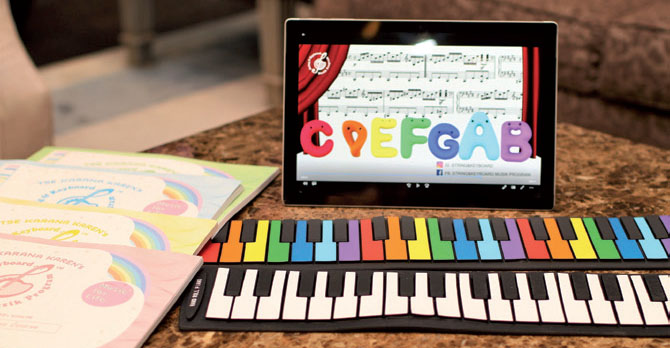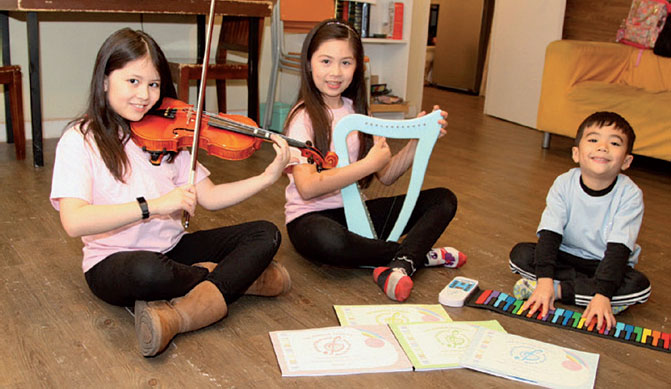
As a reader of this magazine, you will undoubtedly be aware of the many benefits that learning an instrument can bring. Indeed, a 2017 study by researchers at the University of Montreal found that musicians were more likely to display increased reaction times than non-musicians, and that they had a greater ability to make sense of multisensory information and react accordingly. There are many more studies that could be cited and their conclusions would be largely uniform. We know that music can play a vital role in brain development at any age, but it is especially effective in early childhood when the brain is at its most elastic.
Few people know this better than Karen Karana Tse, the founder of String & Keyboard Musik. At the age of nine, she required surgery on her brain to remove a blockage that was limiting blood flow to the area. When the blockage returned three years later requiring a second surgery, she was advised by her doctors to take up music, to act as a bulwark against any adverse effects two brain surgeries may have.
‘After both surgeries, doctors were concerned that my illness would affect my brain development at such a young age – at which point they suggested that I begin training in music and learn different musical instruments to stimulate my brain development and to assist with the recovery from my surgeries,’ says Tse.

The bright colours help young musicians retain their education
‘Since then, my diligent practice in musical instruments has afforded me the ability to tremendously improve my memory, hand-brain coordination, quick-thinking ability and language development.
She started off learning the piano, finding that its nonsynchronous use of both hands helped her to develop greater concentration and coordination, before moving on to play the violin and the harp.
Tse continued to add to her skillset by studying music therapy in Canada. She then moved back to Hong Kong and taught for ten years. While teaching, Tse found that younger learners had difficulty holding their attention.
She identified the need for education strategies that would take this into account and set up String & Keyboard Musik Programme in 2015.
‘Music has changed my life,’ she says. ‘Inspired by my personal trauma and experience, I have started various musical programs and lessons with the firm belief that proper musical learning dramatically improves children's brain development and can further enrich their lives ahead.’

String & Keyboard Musik's methods are simple enough for any child to learn
Her early childhood music education programme uses bright, vivid colours to entice young musicians and help keep their attention. This ensures the best learning environment, giving students the opportunity to develop their skills and provide them with knowledge and tools that will enrich them whatever their path in life. After the first two levels, students can progress onto regular instruments. This clear route of advancement will help them feel a sense of accomplishment and minimise the frustration that some students feel if placed onto a regular instrument straightaway.
Tse's company currently operates in 39 locations across five countries including the USA, France and China. String & Keyboard Musik offers a collection of various music learning programs and lessons to help children's brain development through proper music learning, with the programme being tailor-made for aspiring musicians between the ages of two and eight.
As well as the colourful instruments you see here String & Keyboard Musik also offers a robust range of supporting materials including videos, apps, work books and other learning resources. For more information, please visit stringsandkeyboardmusik.com
How music can help the brain's development
- Expands the field of knowledge
- Understanding of musical concepts
- Improves memory skills
- Trains ability to focus and attention
- Increases coordination
- Cultivates creativity
- Encourages self-expression
- Builds self-esteem
- Strengthens language skills.




